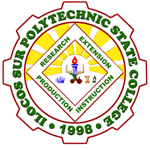This course provides a more in-depth concept of software engineering as a discipline concerned with the application of theory, knowledge, and practice for effectively and efficiently building software systems.
It focuses on the concepts and principles of software requirements engineering, its tools, techniques, and methods for modeling software systems. Various approaches to requirements analysis and review activities are examined.
This course provides an introduction to the theory, methods, and applications of intelligent system. Topics covered include artificial intelligent, machine learning, expert systems, and robotics. The course will also explore the ethical and societal implications of intelligent systems.
This course introduces the students to the knowledge base and technical skills necessary to create and manipulate computer graphics. Area of study include production, design projects, intermediate processes, digital cameras, animation, and student organization. Students will demonstrate knowledge and technical expertise in digital editing. Encompasses advanced vector graphics software applications (such as adobe illustrator) and introduces raster graphics software application using industry-standard software (such as photoshop).
Web Development discusses concepts, principles, and methods related in web programming. The core topics allow students to understand the different client-side and server-side scripting languages in building dynamic websites. Specifically, it covers construction and design on standardized HTML and CSS codes to create structure and appearance.
